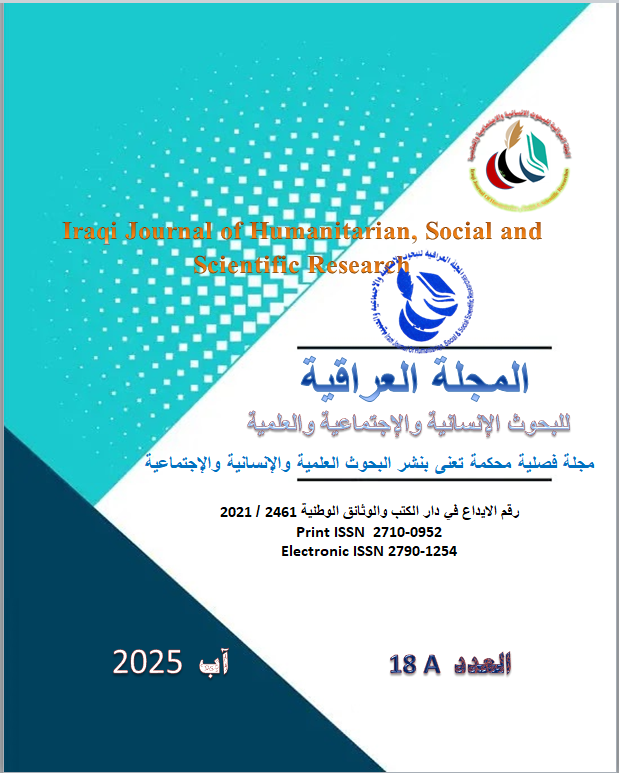Abstract
This study examines the linguistic resources through which former U.S. President Joe Biden and Iraqi Prime Minister Mohammad Shia’ Al - Sudani construct their positions on the 2023 Israel - Gaza conflict in selected political speeches. It applies Martin and white’s (2005) Engagement System, focusing on monoglossic and heteroglossic resources, and van Dijk’s (2006) Ideological Square to provide a qualitative analysis of intersubjective positioning. The study explores how each leader linguistically and ideologically negotiates relationships with their audiences, opponents, and themselves, revealing their ideological stances through the voices they evoke and engage with. Findings reveal that Biden alternates between monoglossic and heteroglossic engagement resources, reflecting a balanced intersubjective positioning. In contrast, Al – Sudani predominantly relies on heteroglossic engagement strategies, signaling a more dialogically engaged positioning. These contrasts highlight culturally embedded discourse practices and demonstrate how engagement resources function as tools for managing authority, solidarity, and ideological alignment in conflict - related discourse. The study contributes to contrastive discourse analysis by illustrating how political speech reflects broader geopolitical and cultural dynamics through strategic language use.
Keywords
contraction
engagement
expansion
heteroglossic
ideology
intersubjective positioning
monoglossic
Abstract
تتناول هذه الدراسة الموارد اللغوية التي من خلالها يشكل الرئيس الأمريكي السابق جو بايدن ورئيس الوزراء العراقي محمد شياع السوداني مواقفهم تجاه صراع إسرائيل – غزه لعام 2023 كما وردت في خطاباتهم. تطبق الدراسة نظام التفاعل الحواري لمارتن وايت (2005), مع التركيز على الموارد الأحادية الصوت و متعددة الاصوات, مربع الايديولوجيا لفان دايك (2006), لتقديم تحليل نوعي للتموضع التفاعلي. تستكشف الدراسة كيف يتفاوض كل من القائدين لغويا وايديولوجيا على علاقاتهم مع جماهيرهم وخصومهم وانفسهم, كاشفة عن مواقفهم الأيديولوجية من خلال الاصوات التي يستحضرونها ويتفاعلون معها. تكشف النتائج ان بايدن يتنقل بين استخدام الموارد الاحادية والمتعددة الاصوات, ما يعكس تموضعا تفاعليا متوازنا في حين يعتمد السوداني في الغالب على استراتيجيات التفاعل المتعددة الاصوات مما يشير الى تموضع اكثر انخراطا حواريا. تبرز هذه التباينات ممارسات خطابيه متجذرة ثقافيا, وتظهر كيف تعمل موارد التفاعل كأدوات لإدارة السلطة والتضامن والاصطفاف الأيديولوجي في الخطاب المرتبط بالصراعات. وتسهم الدراسة في التحليل الخطابي المقارن من خلال اظهار كيف يعكس الخطاب السياسي الديناميكيات الجيوسياسية والثقافية الاوسع من خلال الاستخدام الاستراتيجي للغة.
Keywords
احادي الصوت
التعدد الصوتي
التفاعل
التموضع التفاعلي
الفكر الايديولوجي.
تقليص التعدد الصوتي
توسيع التعدد الصوتي
